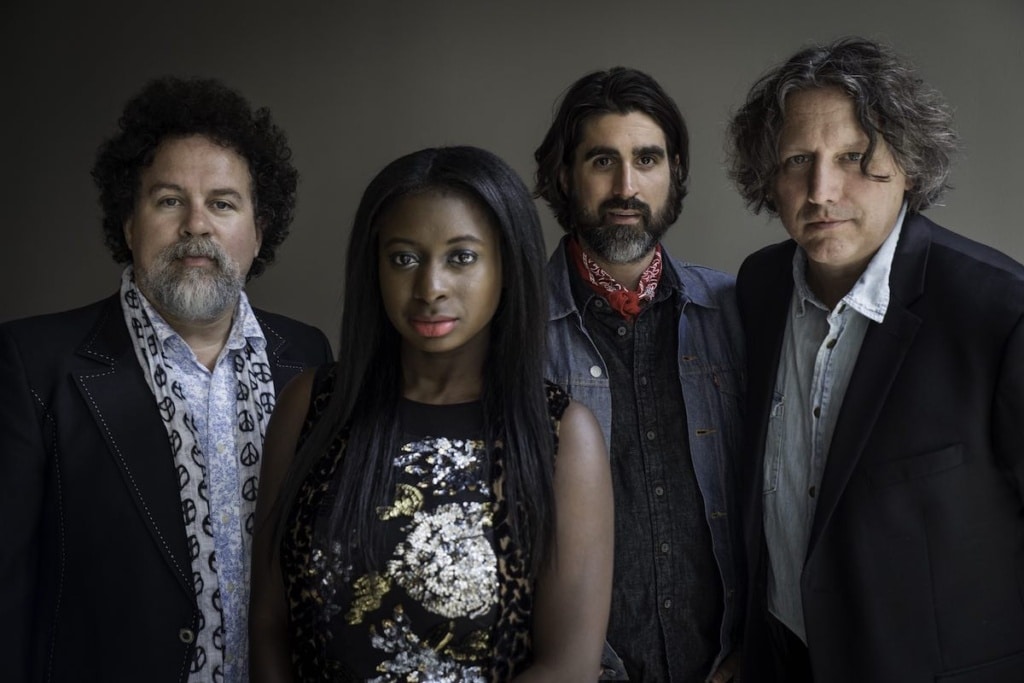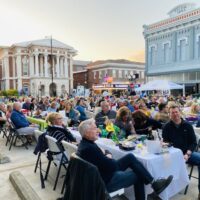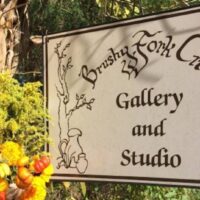When Steve Gorman came home in June 2016 to give a talk for the Chamber of Commerce’s annual meeting, he looked out on a crowd of several hundred people at the James E. Bruce Convention Center and was surprised that he recognized about half of the audience.

He didn’t know all the names, but 30 years after he’d left Hopkinsville to become a rock ’n’ roll drummer, he still knew their faces.
This Friday, Gorman expects to have that experience again — but this time “on steroids.”
He’ll be playing with the band Trigger Hippy at the Alhambra Theatre in downtown Hopkinsville, and the audience will be packed with old friends, family, high school classmates and fans of his first band, the Black Crowes.
Tickets, still available from the Pennyroyal Arts Council, are $25. The concert starts at 7:30 p.m.
Trigger Hippy inspires many genre descriptions — from blues and rock to gospel, soul and funk — but that doesn’t mean the music is so different from the Black Crowes’ signature rock ’n’ roll. (In other words, for all those Black Crowes fans who often dreamed of the legendary band playing one day in Hopkinsville, the Alhambra concert on Friday is not too far from the dream.)
“There’s a lot of ways you can say (Trigger Hippy) doesn’t sound like the Black Crowes, but it feels a whole lot like the Black Crowes,” Gorman told Hoptown Chronicle.
The most obvious reason is Gorman.
When you have the same drummer, you have the same groove, he said.
It also helps that all of the members of both bands have had the same record collections through the years.
Perhaps the biggest difference between the Black Crowes and Trigger Hippy is the way Gorman has been able to experience a band member’s creative collaboration with other musicians.
As he describes in “Hard to Handle: The Life and Death of the Black Crowes – A Memoir” that he co-wrote with Steven Hyden, Gorman’s first band was notoriously fractious and volatile, but also successful with eight studio albums and four live concert albums.
“At 25, I didn’t think values were going to play into anything,” he said. “We were a great band. What could go wrong? That’s how you see it, especially when you have great success early.”
But having survived that experience, and everything that came with the success and fame, Gorman, now 54, has different priorities.
“It’s the most un-rock ’n’ roll thing in the world to say, (but) it’s all about your values,” he said. “You don’t have to have the same values, but you have to at least respect each other. And respect is a lot harder than love and admiration. That’s what I’m focused on.”
Trigger Hippy’s “music takes care of itself because it’s coming from an actual, genuine place that’s not a lot of desperation and fear and angst and anger and rage at the world. It is ‘let’s create something that makes us feel good,’ and we go do that.”
Family
Gorman still counts a grounded and stable childhood as a big influence in his approach to music and life.
“I had a very strong sense of who I was before I ever bought a drum kit. I ran to the basement my whole life to listen to records,” he said. “A lot of people run to the basement to play their own instrument and that’s how they figure out who they are and that becomes their therapist and their best friend.”
Being the youngest child in a big family had its advantages. He learned some people skills.
“You only have to lose a handful of people in life, I think, before you realize we aren’t here forever,” he said.
“I’ve said this a million times, and I’ve lived my life like this. … I’m really only concerned about the people in my life and how we are all doing because the rest of it just comes and goes.”
Gorman, his wife and their children live in Nashville. His mother, Imelda Gorman, still lives in Hopkinsville. Several of his siblings, and their spouses and children, are coming to Hopkinsville for the concert.
“People say, ‘Why do you call Hopkinsville your hometown?’ It’s just because, you know, I was there really from (age) 10 to 21 … and that’s when all the lights come on in life,” he said.
“Everything of note, everything that had consequences or ramifications, and all the lessons learned or unlearned when they should have been, happened in Hopkinsville.”
Gorman graduated from University Heights Academy in 1983. He left Western Kentucky University and moved to Atlanta, where he met brothers Chris and Rich Robinson, his eventual Black Crowes’ co-founders.
A New Band
In Trigger Hippy, Gorman plays with bassist Nick Govrik, guitarist and singer Ed Jurdi and singer Amber Woodhouse.
Govrik is also a chef and Nashville restaurant owner. He and Gorman first played together at a friend’s bar several years ago in between Black Crowes tours.
“Our musical language is identical,” Gorman described.
Jurdi plays with the Texas-based Band of Heathens in addition to Trigger Hippy. He and Gorman met about 10 years ago.
“He’s a great musician,” Gorman said.
Woodhouse came to the group after a music store owner suggested Gorman and Govrik go see her at Acme Feed and Seed music venue in downtown Nashville. She was singing covers and playing saxophone.
When Gorman first heard Woodhouse, he thought there was no way she’d be available to join Trigger Hippy. But she accepted the invitation. Gorman said the Alhambra audience will be amazed by her voice.
The group released Trigger Hippy’s second album, “Full Circle & Then Some” in 2019.
After the Hopkinsville concert, they have several shows on the road, from Bowling Green, to Charlotte, North Carolina, Atlanta, Asheville, North Carolina, Nashville and Memphis.
Jennifer P. Brown is co-founder, publisher and editor of Hoptown Chronicle. You can reach her at editor@hoptownchronicle.org. She spent 30 years as a reporter and editor at the Kentucky New Era. She is a co-chair of the national advisory board to the Institute for Rural Journalism and Community Issues, governing board president for the Kentucky Historical Society, and co-founder of the Kentucky Open Government Coalition.





